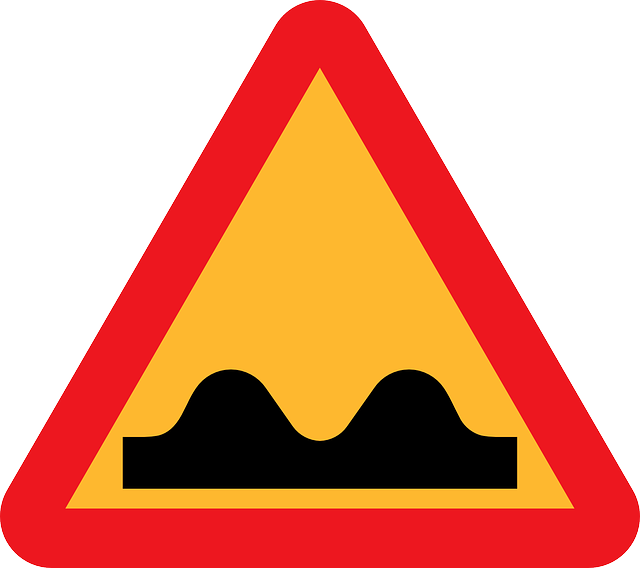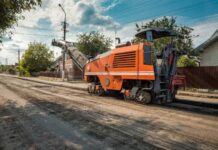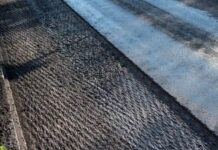Almost all parking lots are outfitted with concrete bumper blocks — also known as wheel stops — as they allow the drivers to park safely and efficiently. These bumper blocks prevent drivers from harming other vehicles parked beside them and protect the landscaping materials. Therefore, these inert visual guides are a common sight in parking lots.
Most businesses utilize them to enhance the safety of their customers and make their parking lots appear organized. However, choosing the right bumper block is crucial to ensuring bumper blocks are visible and effective.
Types of Bumper Blocks
The most common type of bumper blocks is the ones made from rubber, concrete, and plastic. Continue reading to know which one is best suited for your business and will meet your needs.
1. Concrete bumper blocks
Concrete bumper blocks are the most common choice of every business owner. They are prefabricated — the concrete is poured into a mold and taken out when hardened. These bumper blocks are known for their enhanced visibility, as concrete is easily noticeable on asphalt pavements.
Most concrete bumper blocks are equipped with a reinforcing grid, commonly known as a rebar grid. This grid is either a mesh of steel wires or a steel bar inserted into the bumper block to strengthen it and enhance its functionality.
The fact that these concrete wheel stops can be repainted adds to their affordability. Furthermore, they are durable and last for decades based on the upkeep and weather condition of the area.
Concrete bumper blocks are ideal for parking lots with flat surfaces.
2. Rubber
 Rubber bumper blocks are gradually becoming a popular alternative among business owners due to their sustainability. These environmentally friendly wheel stops are made from 100% recycled rubber. Sourced from varied places, the rubber is ground up and transformed into useful bumper blocks and ends up in parking lots — preventing damages — instead of landfills.
Rubber bumper blocks are gradually becoming a popular alternative among business owners due to their sustainability. These environmentally friendly wheel stops are made from 100% recycled rubber. Sourced from varied places, the rubber is ground up and transformed into useful bumper blocks and ends up in parking lots — preventing damages — instead of landfills.
Rubber wheel stops are also lighter and more flexible. Due to the better flexibility, they are less likely to crack or break when hit by a vehicle. Being lightweight, they are easier to install. Moreover, they have a higher resistance to adverse weather.
Given the innumerable benefits they offer, they lie on the expensive side. Their higher cost stems from their demanding processing and manufacturing. They are suitable for well-established businesses and can be installed on both flat and uneven surfaces.
3. Plastic
Plastic wheel stops are another lightweight alternative to rubber and concrete bumper blocks. They are about 20% lighter than the traditional concrete bumper blocks. Therefore, the cost of shipping and handling them is relatively low. They are even available in various colors and designs and are lauded for being highly resistant to oil, gas, and other harmful chemicals.
These bumper blocks do not demand high-level maintenance and hold up well in both hot and cold weather. This feature complements their longevity and makes them last for years without cracking and chipping.
Most importantly, plastic wheel stops are significantly less likely to damage vehicles when the latter hit them. However, they are a misfit for surfaces made of gravel. In fact, they are not ideal for any business with a parking lot having an uneven surface.
Wisely choosing the bumper blocks — depending on the parking lot surface — will save you from spending on a wrong product that does not yield satisfying results. Whereas choosing the one that best fits your business ensures optimum functioning and consistent results.
Address
Commonwealth Paving, 136 Outerloop, Louisville, Kentucky 40214
Phone: 502-459-7283, Fax: 502-456-2678
Opening Hours
| Monday | 9:00 AM – 5:00 PM |
| Tuesday | 9:00 AM – 5:00 PM |
| Wednesday | 9:00 AM – 5:00 PM |
| Thursday | 9:00 AM – 5:00 PM |
| Friday | 9:00 AM – 5:00 PM |
| Saturday | Closed |
| Sunday | Closed |







